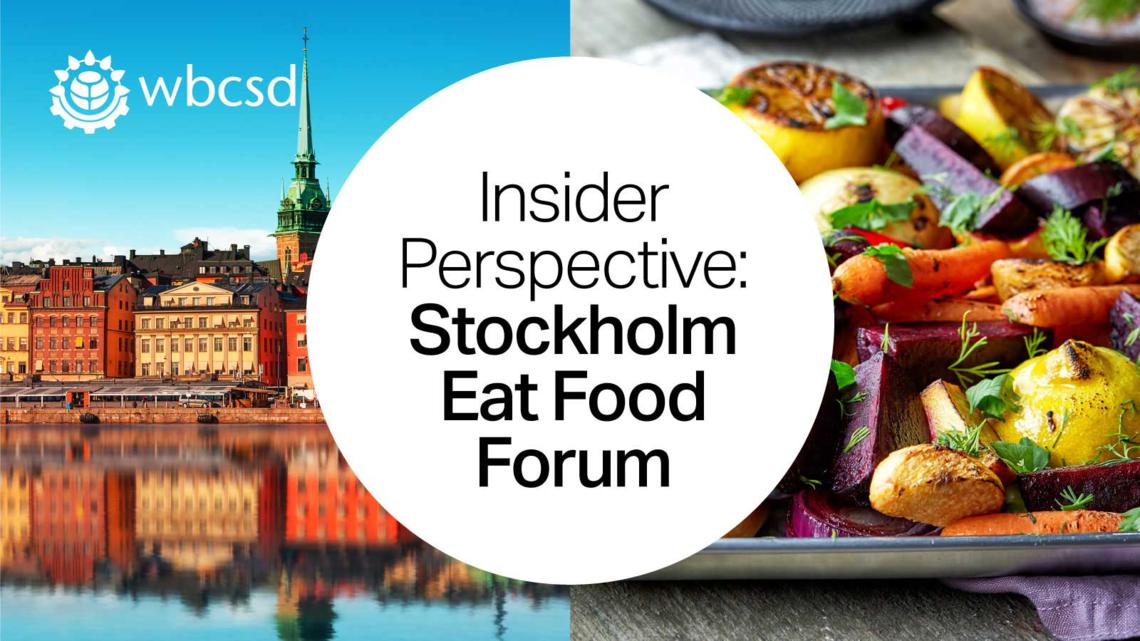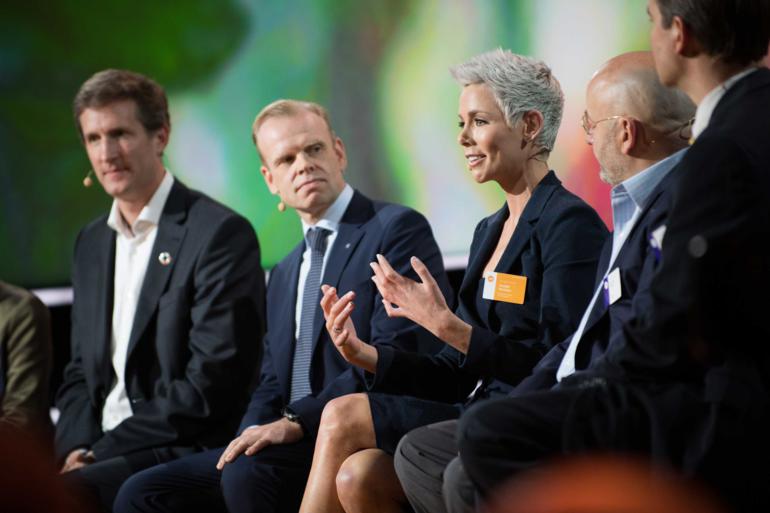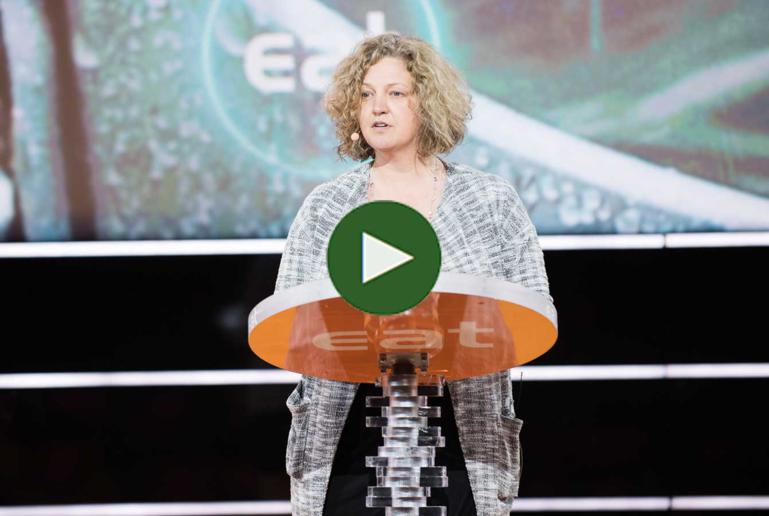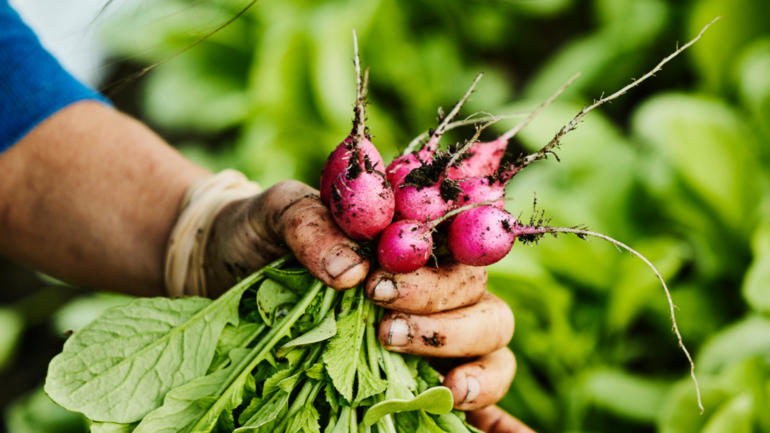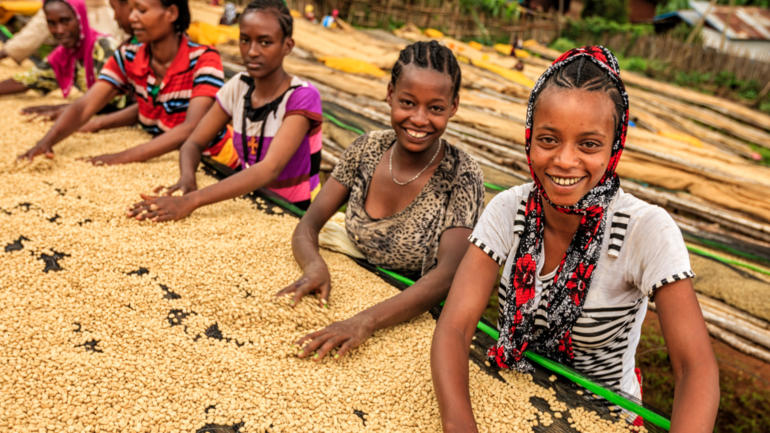Attendees discussed ways that changing approaches to food and nutrition can solve the interconnected challenges of climate, sustainable development and health.
WBCSD attended the Forum to share progress on the joint WBCSD-EAT program, Food Reform for Sustainability and Health (FReSH), as well as to scope further cooperation between various stakeholders across science and academia, policy-makers, business and consumer groups.
Assistant Secretary-General of the UN and Coordinator of SUN MovementThe only way to implement the SDGs, all of them, is through food and nutrition
Food can fix it!
“Our food systems are broken”. “The tipping point is now”. Many words like this expressed the urgency of addressing our broken food systems.
Participants acknowledged that food-related issues go hand-in-hand with every development challenge we face. Food insecurity, famine, hunger, nutrient deficiency, distribution and transport issues are linked with obesity, over-consumption, food loss and waste.
“Food can fix it”, urged Gunhild Stordalen, Founder and President of the EAT Foundation. Gunhild painted a detailed and uncompromising story of the environmental, health and socio-economic challenges posed by today’s dysfunctional food systems. Her powerful message set the tone for the event, which focused on the need for science-based solutions for our broken food systems.
Founder and President, EAT FoundationVisionaries, revolutionaries and innovators are a rising force in every corner of the world, in every discipline and sector, but especially in food
Peter Bakker, President and CEO of WBCSD, was part of the panel that announced the launch of the groundbreaking Food and Land Use Economy (FOLU) initiative. FOLU is an initiative that brings together science, business solutions and country implementation plans to ensure that the business and finance solutions work appropriately and are adaptable to different parts of the world.
The proposal is for a three year, multi-million USD effort (the ‘FOLU effort’) to link better performing food, nutrition and land-use systems to the delivery of the SDGs – all in line with the overarching objective to achieve sustainable land use and feed the world with healthy and nutritious diets, in a way that supports net zero greenhouse gas emissions.
President and CEO, WBCSDThe forward-thinking part of the business community is alive to the urgent need for Food and Land systems to be transformed in an integrated way. Together we can transform the system to ensure 9.5 billion people have access to healthy diets within planetary boundaries
Food Reform for Sustainability and Health (FReSH)
FReSH was launched officially at the World Economic Forum in Davos in January 2017. A year after the partnership of WBCSD and EAT behind it was announced, Alison Cairns, Managing Director of the joint WBCSD and EAT program, took the stage to provide an update on the progress of the initiative and the work ahead.
FReSH is a business-led initiative designed to accelerate transformational change in global food systems. Through jointly created business solutions, it aims to scale new pathways to reach healthy, enjoyable diets for all, produced responsibly within planetary boundaries.
35 companies have come together under the FReSH initiative from a variety of sectors, and representing regions from North America to South East Asia. This diversity adds strength to the program’s unique and holistic outlook on food systems, targeting systemic interventions from the consumer back to the producer. In doing so, FReSH is transforming the traditional catch phrase “from farm to fork” into “from fork to farm”.
Representatives from four FReSH member companies joined the discussion on stage, covering the evidence-based action for sustainable food systems that is already underway in their companies:
- Dr. Anne Roulin, Vice President Nutrition, Health & Wellness and Sustainability within R&D, Nestlé;
- Diane Holdorf, Chief Sustainability Officer and Vice President, Kellogg Company;
- Emmanuelle Wargon, Vice President, Global Corporate Affairs & Sustainability, Danone Group; and
- Dr. Mehmood Kahn, Vice Chairman and Chief Scientific Officer, Global Research and Development, PepsiCo.
All pointed towards the unique opportunity to create innovative business solutions based on scientific targets, as well as the positive feedback loop that is set up when companies come together collaboratively as they are doing within FReSH.
The Kellogg CompanyThe food system we know is coming to an end
Danone GroupWe've been coming from a one-size-fits-all agenda – but cannot treat food as a commodity anymore. We need to give birth to another system where we truly reconnect with producers and communities
The interventions and discussions held during the two-day event confirmed the widely-shared consensus that a revolution of our food systems is essential to be able to feed our planet while sustaining biodiversity levels and achieving the ambitious goals set out under the framework of the Paris Agreement.
While the causes of the failure of our food systems were undisputed, it was also recognized that the steps to fixing them are complex. These steps include modifying consumer approaches so that sustainability is seen as an advantage rather than a burden, as well as working with policymakers around the world to establish policies that reflect ambitious targets and encourage a greater level of involvement from the private sector.
More insights from the EAT Stockholm Food Forum can be found on the event website here.
More information about WBCSD and EAT’s joint program FReSH can be found here.

